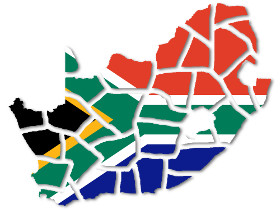BY
The 1994 elections in South Africa brought big changes to the country. The African National Congress (ANC) won the first all-race elections.
With the changes came a lot of uncertainties.
Everyone was wondering where the country would be heading under ANC rule. Was it going to flourish and grow, or was it going to become another failed African state?
The ruling ANC’s supporters were hopeful of a wonderful new life. Many other people were uncertain. But they hoped that things would be OK. Others feared that South Africa would start falling apart.
Now it is more than 20 years later. Who was right?
ANC Rule Since 1994
The ANC has ruled South Africa ever since the 1994 elections. They won four more general elections with large majorities since then.
These victories were not based on exceptional performance by the ANC. They were thanks to a large voter base who seems unwilling or unable to truly judge the ANC’s performance.
The ANC is so sure of continued victories that President Zuma declared that the ANC will rule South Africa forever.
How are things going under ANC rule?
The ANC is looking out for itself first, and not for the people of South Africa. President Zuma recently even admitted that the ANC comes first, not the country.
The ANC will tell you that things are going well. After all, many in the top echelons of the ANC have become wealthy. This seems to be their primary goal.
Many others disagree. They say that things are not going well at all.
In fact, there are some informed people who say that South Africa is failing.
8 Reasons Why South Africa Is Failing
Here are some of the developments that suggest South Africa is failing under ANC rule:
1. Crime is out of control
Crime is ongoing, and the police seem unable to deal with it. There have even been cases where they took part in it. Yes, some of the crime is as a result of the socio-economic situation for many people. But not all poor people are criminals. Many criminals have made crime a lifestyle. Others have turned crime into profitable businesses.
2. Leaders deflect responsibility and stir up hatred
Instead of taking responsibility for the ANC’s failures, President Zuma likes to blame whites for the country’s problems. Julius Malema, the leader of the EFF, also makes anti-white statements while claiming not to be a racist. He has been found guilty of hate-speechbefore.
3. National infrastructure is crumbling
Eskom, the national electricity company, is crumbling. This is due to poor maintenance and insufficient planning for new generators. Electrical blackouts, a.k.a. “load shedding,” have become common over the past year or two. Eskom warned that this will continue until at least 2017. Recent reports say that the water supply is starting to crumble as well.
4. Unemployment is increasing
Unemployment has been a problem in South Africa for a long time. It is worse now than at the end of apartheid 20 years ago. The current unemployment rate is more than 25%. Among youth aged 15-24, it is 50%.
5. Education system creates unemployables
The education system is in an appalling state. It has high failure rates despite low passing requirements. About 50% of kids who enter school in Grade 1, never make it to Grade 12. Combined with a high Grade 12 failure rate, it leaves a large percentage of youth that is unemployable. One commentator has even referred to South Africa’s youth as a “ticking time-bomb.” This situation is also likely to make the crime problem worse.
6. Corruption & fraud have become a way of life
Corruption is running wild in government. President Zuma’s Nkandla project is the poster-child for government officials using government funds for personal gain. The inner circle of the ruling ANC and their families are getting rich off government projects. This is like what happened in Zimbabwe with Mugabe and his inner circle. Many consider the ongoing corruption and fraud to be the biggest problem in South Africa.
7. Credit rating & currency is falling
Constant labor strikes and violent protests have cost the country. Credit ratings agencies have downgraded South Africa’s credit rating. This makes it more expensive for South Africa to borrow money. Another downgrade is looming. With the downgrades come the departure of foreign capital investments. Along with that came the drop in the value of the currency. The Rand currently trades at more than R14 per 1 US Dollar, an all-time low.
8. Economic growth continues to decline
South Africa’s economic growth has been slowing for several years. In 2013 the economy grew by 1.9% and in 2014 by 1.4%. This is partly due to many of the issues already mentioned, like labor strikes, power outages, and credit rating downgrades.
This list is not exhaustive. There are other problems as well.
What Prominent Commentators Say
In his book, How Long Will South Africa Survive?, R.W. Johnson opined that South Africa may have to approach the IMF for a bailout in as little as two years. Johnson feels that the ANC government is unlikely to change it ways. It will take a regime change to rescue the situation.
Magnus Heystek, a prominent investment strategist, says that South Africa is on the road to bankruptcy.
Can This Really Be Happening?
The above issues paint a dreadful picture. Are there positive things that could make a real difference? Are there things that negate the above issues? It would only be fair to consider those as well.

